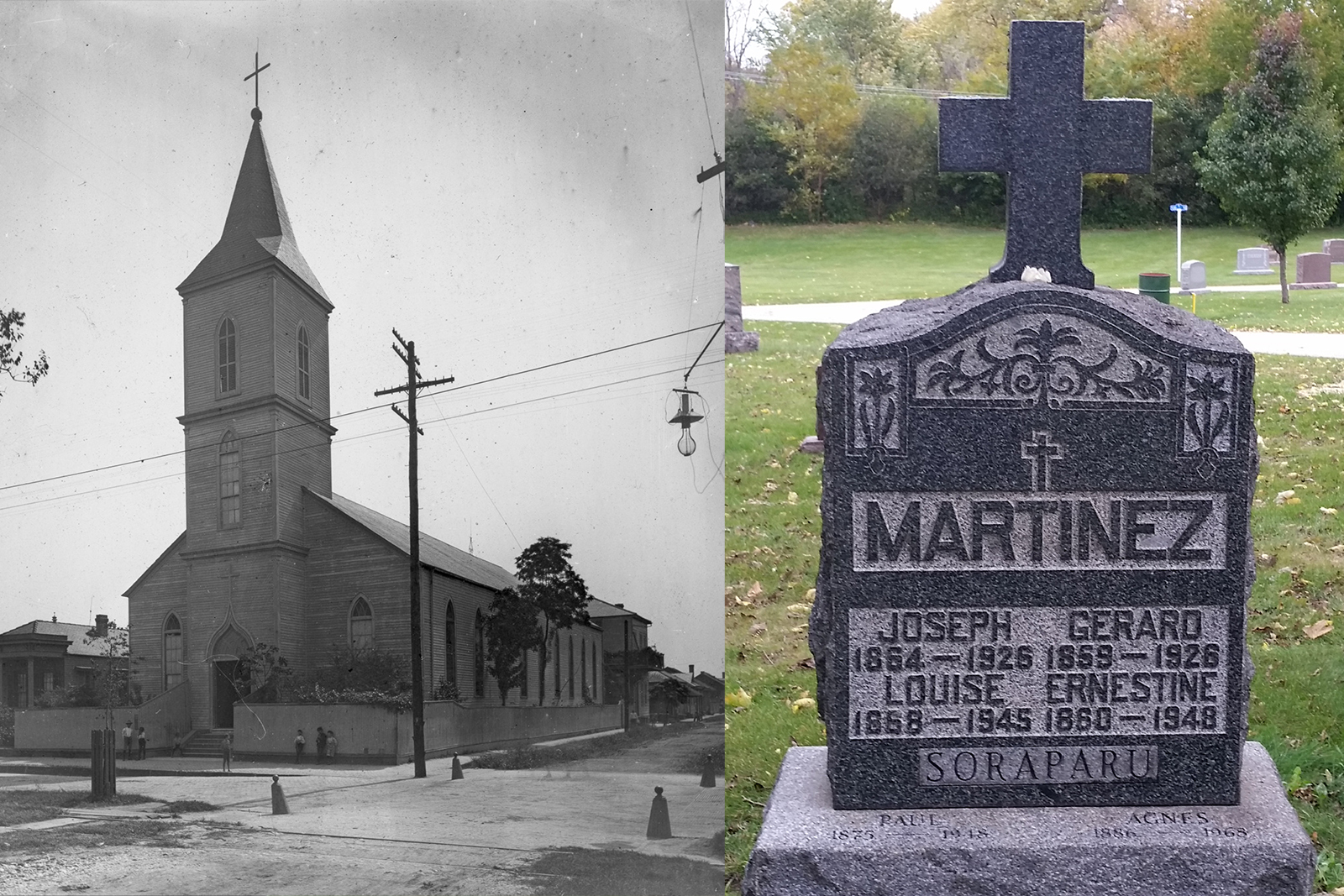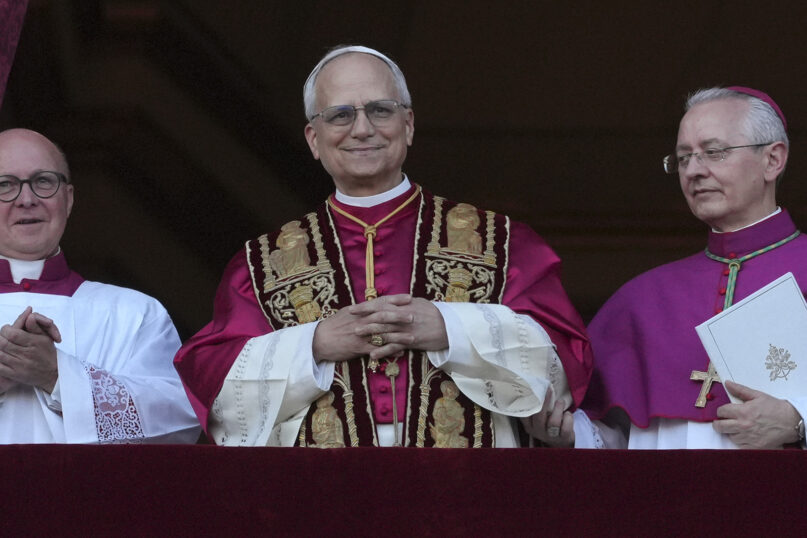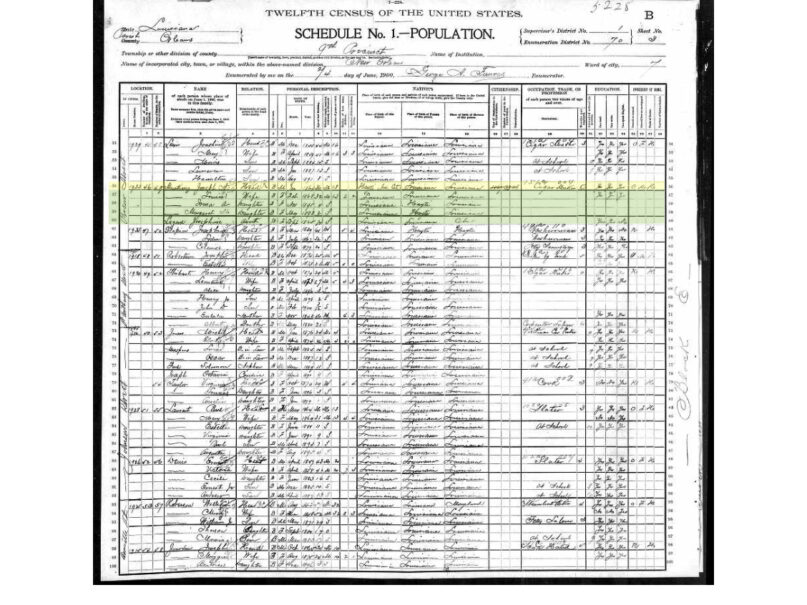
(RNS) — As a Chicago-born missionary to Peru, Robert Francis Prevost — now Pope Leo XIV — was arguably the least American of the American Cardinals. But despite his close ties to Peru, where he led an Augustinian seminary and, later, the Diocese of Chiclayo, his Creole roots are evidence of Leo’s distinctly American ties.
Specifically, historical records indicate that Leo’s maternal ancestors were Creoles of color. The 1900 Federal Census lists Leo’s maternal grandfather, Joseph Martinez, as being born in “Hayti,” living in New Orleans’ Ward 7, and as being Black. The census also records Louise Martinez (nee Baquié), Leo’s maternal grandmother, as being Black, along with two of Leo’s aunts (Leo’s mother was born later, in 1912).
Other census records hint at the complexity of Creole identity — a cultural designator referencing a diverse group of people with ties to colonial Louisiana — and of Black identity in America. Earlier records reference Leo’s maternal ancestors as “mulatto,” a term used at the time for people of mixed Black and white ancestry, and by the time the family moved to Chicago in 1912, they were consistently listed as white. In the 1920 Federal Census, for instance, both Joseph and Louise Martinez were characterized as white, and Joseph’s birthplace appears to have been listed as the United States of America. Joseph Martinez’ birthplace is listed elsewhere as the Dominican Republic.
“It’s fascinating how Blackness has played out in the United States. Not every Black person looks the same. Not every Black person is in the position to identify as Black, in order to survive,” said Nate Tinner-Williams, co-founder and editor of Black Catholic Messenger, which reported on Leo’s Creole identity. “And of course we don’t know what happened to Pope Leo’s family, but what we do know about history, more broadly, Black history in the United States, is racial identity was fluid for some people, depending on the shade of their skin.”
Tinner-Williams told RNS he learned of Leo’s ancestry from a social media post from his friend, New Orleans genealogist Jari C. Honora, who was the first to uncover the pope’s Creole lineage on Thursday. After Leo finished his first address and blessing, Honora, who works at a museum and research center called The Historic New Orleans Collection, became curious about the French-sounding last name “Prevost.” Looking into Prevost’s ancestry revealed that many of his maternal ancestors were Creoles of color who lived in New Orleans.
“Both Joseph Norval Martinez and Louise Baquié were people of color, no doubt about it,” Honora told The New York Times. He told RNS it was unsurprising that Prevost’s ancestors passed as white after leaving Louisiana. “For so many people and so many families, it was a survival tactic. With the oppressive conditions in the South, and all the challenges that they faced, that they were able to just move elsewhere and just live as white.”

Newly elected Pope Leo XIV appears at the balcony of St. Peter’s Basilica at the Vatican, Thursday, May 8, 2025. (AP Photo/Andrew Medichini)
The pope’s brother, John Prevost, 71, confirmed the pope’s background to The New York Times, though he added that the family didn’t identify as Black. It’s unclear whether Leo has ever spoken publicly about having ancestors who are Creoles of color.
Tinner-Williams who writes about Black Catholics for a living, told RNS he had been hoping for a Black pope. “With the sadness of losing Pope Francis, one of the consolations was that he had spent so much effort diversifying the College of Cardinals,” he told RNS. “So it was more of a possibility now than ever. … now, not only do we have one, we have a Creole pope.”
Christopher Gurley, a Ph.D. student in religious studies at Stanford University who studies African American history and Catholicism, said he thinks Leo’s Creole heritage will bring together conversations about Pope Francis’ “appeal to the margins” and discussions about “the historical processes of racialization within the Catholic context.”
Census records indicate that Joseph Martinez, Leo’s grandfather, was a cigar maker whose native language was French. He and Louise Baquié were married in 1887 at Our Lady of the Sacred Heart in the Seventh Ward, a historically Catholic neighborhood in New Orleans with strong Afro-Creole ties. Honora also told RNS that Leo has an aunt who was a Mercy Sister.

1900 Census showing the Martinez family living at 1933 North Prieur Street in New Orleans Ward 7. (Image via Ancestry.com)
Though the family eventually moved to Chicago, where pope Leo’s mother, Mildred Martinez, was born in 1912 and where Leo was born in 1955, Honora is optimistic that the spotlight on Leo’s ancestors will draw attention to the strong Catholic heritage of New Orleans.
“I always say, everybody in New Orleans is Catholic, even if it’s just culturally, because so many of our peace days and devotional practices have extended to the entire city,” he said. He also hopes knowing of Leo’s ancestors, who lived Black lives in the segregated South, will encourage church leaders to be sympathetic to the cause for Black Catholic sainthood.
Gurley, from Stanford, agreed, adding that some Black Catholics are eager to see attention brought to “the struggle of black Catholics in their own church.” While several Black Catholics are candidates for sainthood, there have been no African Americans who have been formally canonized.
“This moment is auspicious, to say the least, especially for Black people who are looking to see themselves in the leadership of the church, especially at the highest level,” said Tinner-Williams.
